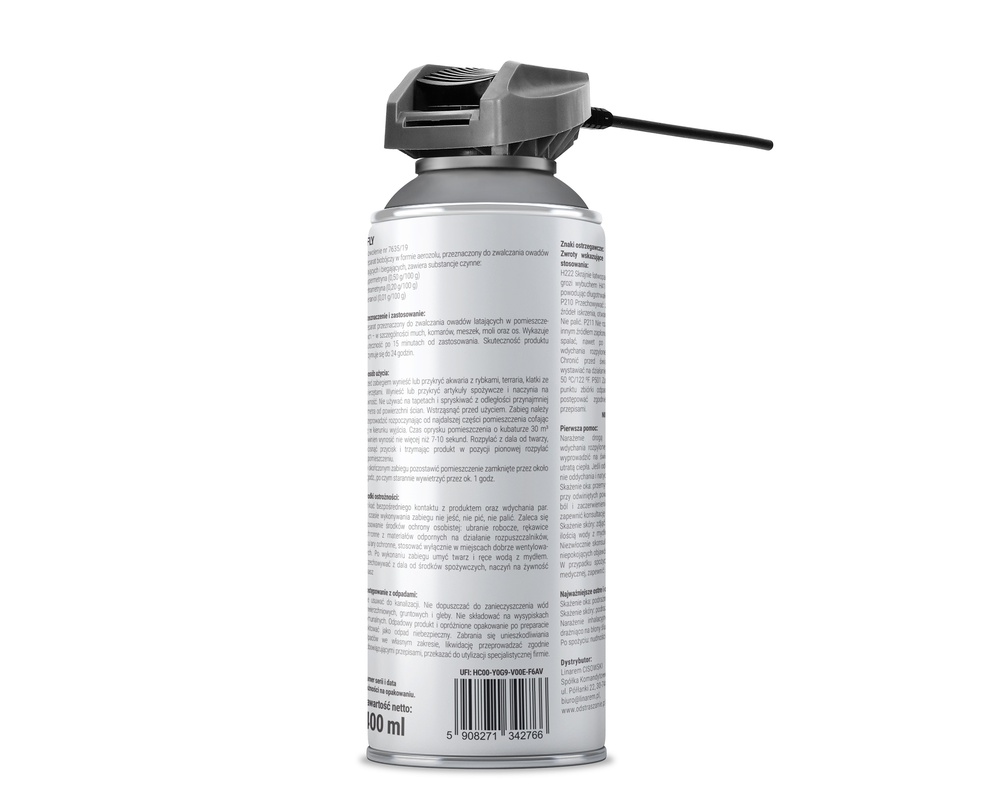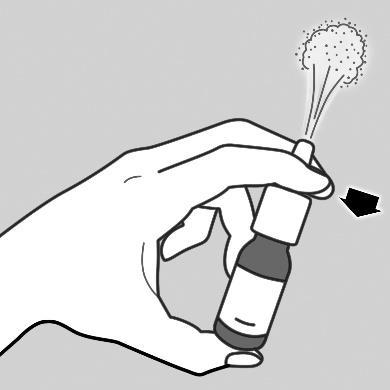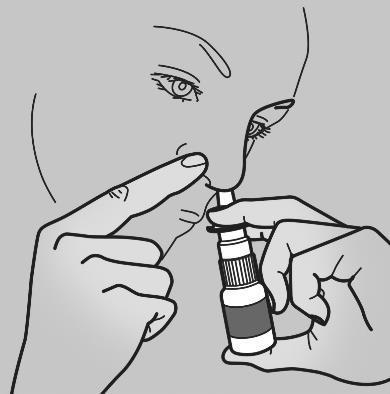

Biflovn

Ask a doctor about a prescription for Biflovn

How to use Biflovn
PATIENT INFORMATION LEAFLET
Leaflet attached to the packaging: information for the user
Biflown
(137 micrograms + 50 micrograms)/dose
nasal spray, suspension
Azelastine hydrochloride + Fluticasone propionate
Read the leaflet carefully before using the medicine, as it contains important information for the patient.
- Keep this leaflet, you may need to read it again.
- In case of any doubts, consult a doctor or pharmacist.
- This medicine has been prescribed specifically for this person. Do not pass it on to others. The medicine may harm another person, even if their symptoms are the same.
- If the patient experiences any side effects, including any side effects not listed in this leaflet, they should tell their doctor or pharmacist. See section 4.
Table of contents of the leaflet
- 1. What is Biflown and what is it used for
- 2. Important information before using Biflown
- 3. How to use Biflown
- 4. Possible side effects
- 5. How to store Biflown
- 6. Package contents and other information
1. What is Biflown and what is it used for
Biflown contains two active substances: azelastine hydrochloride and fluticasone propionate.
- Azelastine hydrochloride belongs to a group of medicines called antihistamines. Antihistamines work by preventing the action of substances such as histamine, which the body produces as part of an allergic reaction, and thus reduce the symptoms of allergic rhinitis.
- Fluticasone propionate belongs to a group of medicines called corticosteroids, which reduce inflammation.
Biflown is used to relieve the symptoms of moderate to severe seasonal and perennial allergic rhinitis, if the use of other nasal products containing only an antihistamine or corticosteroid is considered insufficient.
Seasonal and perennial allergic rhinitis is a type of allergic reaction to substances such as plant pollen (hay fever), house dust mites, mold spores, dust, or pet dander.
Biflown relieves allergy symptoms, such as: nasal discharge, postnasal drip, sneezing, itching, and a feeling of nasal congestion.
2. Important information before using Biflown
When not to use Biflown
- if the patient is allergic to azelastine hydrochloride or fluticasone propionate or any of the other ingredients of this medicine (listed in section 6).
Warnings and precautions
Before starting to use Biflown, the patient should discuss it with their doctor or pharmacist:
- If the patient has recently undergone nasal surgery.
- If the patient has a nasal infection. The nasal infection should be treated with antibacterial or antifungal medications. Patients who have been treated with medications for a nasal infection may continue to treat their allergy with Biflown.
- If the patient has tuberculosis or an untreated infection.
- If the patient notices a change in vision or has been diagnosed with increased intraocular pressure, glaucoma, and/or cataracts in the past. Patients with these conditions will be closely monitored during the use of Biflown.
- If the patient has adrenal gland disorders. Caution is advised when switching from systemic steroid therapy to Biflown therapy.
- If the patient has severe liver disease. This increases the risk of systemic side effects.
In these cases, the doctor will decide whether Biflown can be used.
It is essential for the patient to take the medicine in the dose prescribed below in section 3 or as recommended by the doctor.
Using nasal corticosteroids in higher doses than recommended may cause adrenal gland suppression, which can lead to weight loss, fatigue, muscle weakness, low blood sugar, increased salt requirements, joint pain, depression, and darker skin pigmentation.
In such cases, the doctor may recommend taking another medicine during periods of stress or scheduled surgery.
To avoid adrenal gland suppression, the doctor may recommend taking the medicine in the smallest dose that will continue to effectively control the symptoms of allergic rhinitis.
If the patient experiences blurred vision or other vision disturbances, they should contact their doctor.
In case of doubts about whether the patient is affected by any of the above situations, they should consult their doctor or pharmacist before starting to use Biflown.
Children and adolescents
Biflown is not recommended for use in children under 12 years of age.
In children and adolescents, long-term use of nasal corticosteroids (such as Biflown) may slow down growth rates.
The doctor will regularly check the child's growth and ensure that they are taking the medicine in the lowest effective dose.
Biflown and other medicines
The patient should tell their doctor or pharmacist about all medicines they are taking, have recently taken, or might take, including those available without a prescription.
Some medicines may enhance the effects of Biflown, and the doctor may recommend close monitoring if the patient is taking such medicines (including certain HIV medicines: ritonavir, cobicistat, and antifungal medicines: ketoconazole).
If the patient is taking sedatives or central nervous system depressants, they should not use Biflown.
Pregnancy and breastfeeding
If the patient is pregnant or breastfeeding, thinks they may be pregnant, or plans to have a baby, they should consult their doctor or pharmacist before using this medicine.
Driving and using machines
Biflown has a minor influence on the ability to drive and use machines.
Very rarely, drowsiness and dizziness may occur, which may be caused by the disease itself or the use of Biflown.
In such cases, the patient should not drive or operate machinery.
They should be aware that drinking alcohol may enhance such effects.
Biflown contains benzalkonium chloride
This medicine contains 14 micrograms of benzalkonium chloride in each spray.
Benzalkonium chloride may cause irritation or swelling inside the nose, especially if used for a long time.
3. How to use Biflown
This medicine should always be used as directed by the doctor.
In case of doubts, the patient should consult their doctor or pharmacist.
For the treatment to be effective, Biflown must be used regularly.
The patient should avoid contact with the eyes.
Use in adults and adolescents (12 years and older)
One dose should be used in each nostril, in the morning and evening.
Use in children under 12 years
Biflown is not recommended for use in children under 12 years of age.
Use in patients with renal and hepatic impairment
There are no data on the use of Biflown in patients with renal and hepatic impairment.
Method of administration
Nasal administration.
The patient should carefully read the instructions below and use the medicine only as directed.
INSTRUCTIONS FOR USE
Preparing the spray
- 1. Gently shake the bottle for 5 seconds, moving it up and down, and then remove the protective cap.
- 2. If the nasal spray is used for the first time, prime the pump by releasing a dose into the air.
- 3. Prime the pump by placing two fingers on either side of the pump and the thumb on the bottom of the bottle.
- 4. Press and release the pump 6 times, until a fine mist is produced (see figure a).

a
- 5. The pump is now primed and ready for use.
- 6. If the nasal spray has not been used for more than 7 days, re-prime the pump by pressing and releasing it once.
Using the spray
- 1. Gently shake the bottle for 5 seconds, moving it up and down, and then remove the protective cap.
- 2. Blow the nose to clear the nostrils.
- 3. Tilt the head forward towards the toes. Do not tilt the head back.
- 4. Hold the bottle upright and gently place the tip of the dosing device in the nostril.
- 5. Block the other nostril with a finger, press the pump quickly once, and at the same time, take a gentle breath in (see figure b).

b
- 6. Breathe out through the mouth.
- 7. Repeat the same steps for the other nostril.
- 8. After administering the medicine, take gentle breaths in and do not tilt the head back.
- 9. After each use, wipe the tip of the dosing device with a clean tissue or cloth and replace the protective cap.
- 10. If the tip of the dosing device becomes blocked, do not try to unblock it or use a sharp object to clear it.
It is essential to use the dose prescribed by the doctor.
Duration of treatment
Biflown can be used for a long time.
The duration of treatment should correspond to the period during which allergy symptoms occur.
Using a higher dose of Biflown than recommended
In case of using too much nasal spray, there is a small risk of complications.
The patient should consult their doctor if they are concerned or if they have been taking a higher dose than recommended for a long time.
If someone, especially a child, accidentally swallows Biflown, they should immediately contact a doctor or the nearest hospital emergency department.
Missing a dose of Biflown
The patient should use the nasal spray as soon as they remember and then use the next dose at the usual time.
They should not use a double dose to make up for a missed dose.
Stopping the use of Biflown
The patient should not stop using Biflown without consulting their doctor, due to the risk of ineffective treatment.
In case of further doubts about the use of this medicine, the patient should consult their doctor or pharmacist.
4. Possible side effects
Like all medicines, Biflown can cause side effects, although not everybody gets them.
Very common side effects (may affect more than 1 in 10 people):
- Nasal bleeding
Common side effects (may affect up to 1 in 10 people):
- Headache
- Bitter taste in the mouth, especially if the patient tilts their head back during administration of the nasal spray.
- Unpleasant odor
Uncommon side effects (may affect up to 1 in 100 people):
- Mild irritation inside the nose.
- Dryness in the nose, cough, dryness in the throat, or throat irritation
Rare side effects (may affect up to 1 in 1000 people):
- Dryness in the mouth
Very rare side effects (may affect less than 1 in 10,000 people):
- Dizziness or drowsiness
- Cataracts, glaucoma, or increased eye pressure, which may cause vision loss and/or eye redness and pain.
- Skin and nasal mucosa damage
- General malaise, feeling tired, weak, or exhausted
- Rash, itching, or skin redness, itchy blisters on the skin
- Bronchospasm (narrowing of the airways)
The patient should seek immediate medical attention if they experience any of the following symptoms:
Facial swelling, lip, tongue, or throat swelling, which may cause difficulty swallowing
and/or breathing, as well as a sudden skin rash.These may be symptoms of a severe allergic reaction.
These symptoms are very rare.
Side effects with unknown frequency (frequency cannot be estimated from available data):
- Blurred vision
- Nasal mucosa ulceration
In case of using the medicine in high doses for a long time, systemic side effects may occur (side effects affecting the whole body).
The likelihood of their occurrence is much lower when using nasal corticosteroids than during treatment with oral corticosteroids.
These side effects may vary between patients and after using different corticosteroid medicines (see section 2).
Nasal corticosteroids may affect the normal production of hormones in the body, especially when used for a long time in high doses.
In children and adolescents, these side effects may cause growth retardation.
In rare cases, a decrease in bone density (osteoporosis) has been observed when corticosteroids were used nasally for a long time.
Reporting side effects
If the patient experiences any side effects, including any side effects not listed in the leaflet, they should tell their doctor or pharmacist.
Side effects can be reported directly to the Department of Drug Safety Monitoring, Office for Registration of Medicinal Products, Medical Devices, and Biocidal Products, Al. Jerozolimskie 181C, 02-222 Warsaw, tel.: +48 22 49 21 301, fax: +48 22 49 21 309, website: https://smz.ezdrowie.gov.pl
Side effects can also be reported to the marketing authorization holder.
By reporting side effects, more information can be gathered on the safety of the medicine.
5. How to store Biflown
The medicine should be stored out of sight and reach of children.
Do not use this medicine after the expiry date stated on the label and carton after EXP.
The expiry date refers to the last day of the month stated.
Do not store in the refrigerator or freeze.
Shelf life after first opening: 6 months.
Medicines should not be disposed of via wastewater or household waste.
The patient should ask their pharmacist how to dispose of medicines they no longer use.
This will help protect the environment.
6. Package contents and other information
What Biflown contains
- The active substances are azelastine hydrochloride and fluticasone propionate.
Each gram of suspension contains 1000 micrograms of azelastine hydrochloride and 365 micrograms of fluticasone propionate.
- Other ingredients are disodium edetate, glycerol, microcrystalline cellulose, sodium croscarmellose, polysorbate 80, benzalkonium chloride, phenylethyl alcohol, and purified water.
What Biflown looks like and contents of the pack
Biflown is a white or almost white, homogeneous suspension.
Biflown is available in a brown glass bottle with a pump spray, applicator, and protective cap, in a cardboard box.
The 25 mL bottle contains 23 g of nasal spray suspension (at least 120 doses).
Biflown is available in:
packaging containing 1 bottle with 23 g of nasal spray suspension.
Marketing authorization holder and manufacturer
Marketing authorization holder
SUBSTIPHARM
24 rue Erlanger
75016 Paris
France
Manufacturer
FARMEA
10, rue Bouché Thomas
ZAC d’Orgemont
49007 Angers
France
FARMACLAIR
440 Avenue Du Général De Gaulle
14200 Hérouville-Saint-Clair
France
This medicine is authorized in the Member States of the European Economic Area under the following names:
Poland: Biflown
Sweden: Biflown
Date of last revision of the leaflet: 17/04/2025
- Country of registration
- Active substance
- Prescription requiredYes
- ImporterFarmaclair FARMEA
- This information is for reference only and does not constitute medical advice. Always consult a licensed doctor before taking any medication. Oladoctor is not responsible for medical decisions based on this content.
- Alternatives to BiflovnDosage form: Aerosol, (137 mcg + 50 mcg)/doseActive substance: fluticasone, combinationsPrescription requiredDosage form: Aerosol, (137 mcg + 50 mcg)/ doseActive substance: fluticasone, combinationsPrescription requiredDosage form: Aerosol, (137 mcg + 50 mcg)/nasal doseActive substance: fluticasone, combinationsPrescription required
Alternatives to Biflovn in other countries
The best alternatives with the same active ingredient and therapeutic effect.
Alternative to Biflovn in Spain
Alternative to Biflovn in Ukraine
Online doctors for Biflovn
Discuss dosage, side effects, interactions, contraindications, and prescription renewal for Biflovn – subject to medical assessment and local rules.








